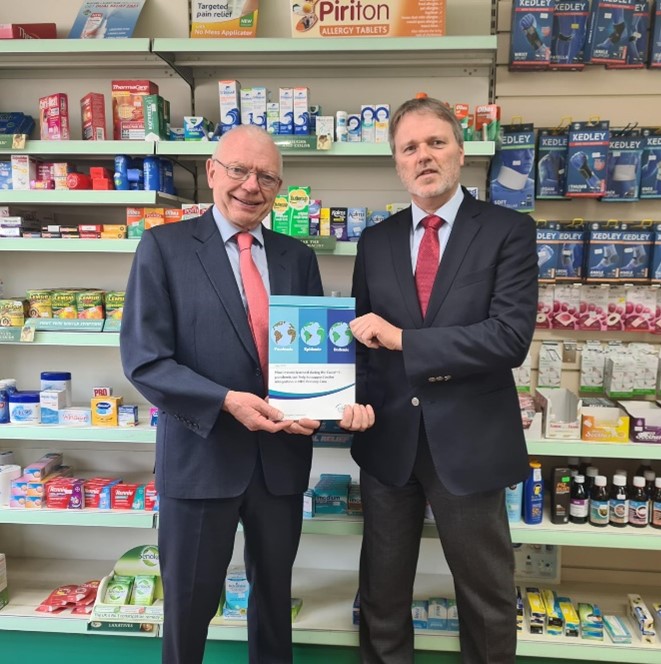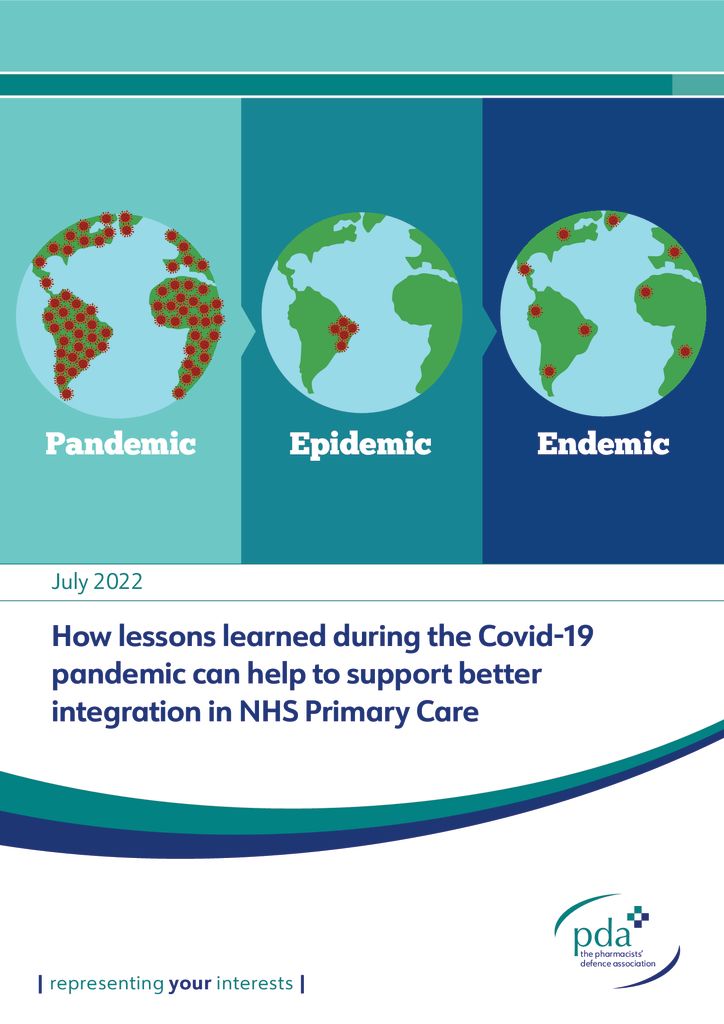With the current pressures and challenges across the entire system, the status quo cannot continue and the post Covid period provides an opportunity to reconfigure parts of health and social care. New collaborative operational frameworks can be created that can not only drive down the unmet needs, but also deliver benefits to the NHS, the taxpayer and most importantly of all to the patients.
The PDA’s suggestions are predicated on a model where at least two pharmacists are working in each community pharmacy, empowered, and enabled with two-way referral pathways, having more clinical input and full access to patient records. Such an environment could not only help to improve communications between health professionals and increase access to services for patients, but would support the NHS to operate more effectively. While the report by the PDA requires a rethink of the contribution of community pharmacy, the proposals could be achieved with the right political will and support from across the sector.
The Covid-19 pandemic not only highlighted some of the inefficiencies in the current system but also displayed the level of flexibility that can be adopted when needed. The opportunity is there, and this report from the PDA illustrates how to achieve this potential. With some changes having already occurred, such as the greater use of technology for virtual consultations, it is important to build upon the pandemic experience and embrace a more integrated and collaborative approach to providing health and social care.
The NHS is under immense pressure as it continues to grapple with Covid-19 itself and work through the backlog of care that was paused during the height of the pandemic. The interface between health and social care has become ever more important and services must evolve to better bridge the divide that currently exists between the two. Where resources are stretched, it is of the utmost importance to fully utilise all available assets and referral pathways, which includes pharmacists.

Lord Hunt joined PDA Chairman, Mark Koziol recently at Evergreen Pharmacy in Birmingham to formally launch the report
The report has been developed through the combined views and feedback of PDA members. The PDA is delighted that Lord Philip Hunt of Kings Heath, a House of Lords health spokesperson and former Minister of State at the Department of Health was able to attend a recent meeting of external stakeholders at the House of Lords which discussed the report’s proposals and has written the foreword to the report.
Alison Jones, PDA Director of Policy said, “The PDA recognises that more than ever before, the NHS needs to adapt and innovate and be integrated with social care. We know that health and social care must move forward and provide high-quality care and address public health issues before they become endemic.
We also recognise that with the right funding and structures pharmacists based in a variety of settings, including those in local communities, are best placed to carry out many functions and that is what these latest proposals set out to address.”
The PDA is the largest pharmacists’ membership organisation in the UK and is pleased to produce this report as part of the organisation’s contribution to the discussion about the future of pharmacy and the wider health and social care system, post-Covid-19.
Read the PDA’s report ‘How lessons learned during the Covid-19 pandemic can help to support better integration in NHS Primary Care’ here
Not yet a PDA member?
If you have not yet joined the PDA, we encourage you to join today and ask your colleagues to do the same.
Membership is FREE to pharmacy students, trainee pharmacists, and for the first three months of being newly qualified.
Read about our key member benefits here.
